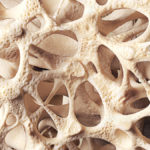By David Blyweiss, M.D., Advanced Natural Wellness
If you are a frequent reader, you are no doubt concerned with your health. You take supplements, perhaps you exercise and you try to eat healthfully. But, when it comes to what you eat, it’s not just about the right ratio of protein, healthy fats and carbs or natural and organic vs. refined and processed. The missing link to dietary bliss lies in its pH.
Maintaining a normal body pH, also called an acid-alkaline balance, is one of the most important aspects of good health. It’s also one of the most misunderstood and most ignored. The truth is that many so-called “healthy” diets are filled with acidic foods. Eating too many acidic foods and not enough alkaline ones can cause an acid imbalance in your body. And that’s a problem since the human body needs both acid and alkaline compounds to function properly.
An acid imbalance means that the blood and cellular fluids in the body have an acidic pH and not enough alkaline compounds for a healthy ratio. If your blood is chronically acidic, you can experience a variety of problems like fatigue, foggy thinking, weight gain and heartburn. Of more concern, research from Austria suggests that an acidic environment may increase the risk of Alzheimer’s disease. Other studies link the condition to bone loss and increased levels of the stress hormone cortisol. One recent study even ties acidosis and chronic inflammation to an increased risk of cancer.
Many staples of the American diet—processed foods, meat, dairy, eggs, fish, corn, peanuts, chocolate, refined sugar, artificial sweeteners and wheat—are acidic. Alkaline foods balance acidic foods, but most of us don’t consume enough alkalizing choices or participate in activities to reduce acidosis, such as exercise and stress management. However, making a few dietary changes can help rebalance your acid-alkaline levels.
The first step starts in the kitchen. Toss out refined sugar of any kind. This means not only table sugar, but all processed and refined food products that contain sugar. Be aware that, on food labels, sugar may show up under other names, including brown sugar, corn syrup, dextrose, fructose, glucose, high-fructose corn syrup, invert sugar, lactose, maltose, mannitol, sorbitol, sucrose and xylitol (although xylitol does have some antimicrobial effects and is the healthiest sugar found in some of the newer chewing gums).
It’s also important to reduce or eliminate your consumption of acid-forming foods until your body regains its natural balance. This includes alcohol, beans, carbonated beverages, catsup, chocolate, coffee, cranberries, eggs, fish, meat, milk, mustard, olives, pepper, prunes, sugar, tea, tomatoes and vinegar. Instead, emphasize foods that are alkalinizing to the body like corn, dates, most fresh fruits, most fresh vegetables, honey, maple syrup, molasses, raisins and soy products. Eating an alkaline-rich diet is very powerful way to make everything else in your body work better.
You can also rebalance your body with supplements. Green-food supplements like spirulina, barley greens, chlorella and blue-green algae are very alkaline. Often, this type of supplement will alkalinize the body fairly quickly. I recommend taking a green-foods supplement daily as directed on the product label.
The World's Quickest Solution for Ending Prostate and Urinary Misery
This has recently been revealed to be one of the only real breakthroughs in prostate health.
The seeds of a strange fruit (sometimes called "Chinese Apples") hold powerful phytonutrients that are a revolution in prostate health.
In fact, UCLA and Veterans Administration research have now proved this to be true.
Not only that, but it may be the worlds quickest solution for ending prostate misery.
Simply stated, these phytonutrients represent a huge step beyond beta sitosterol, saw palmetto, and other phytosterols alone.
Simply click HERE if you want to have fast prostate relief...restful, uninterrupted sleep...no more constant "urges to go"...enhanced virility...and optimal prostate support for life.
Probiotics also help rebalance your body’s acid/alkaline balance, at least indirectly, by neutralizing toxic metabolites. These beneficial bugs are sold as powders, liquid, capsules and tablets—many of which need to be refrigerated. The minimum dose to prevent common illnesses is one billion live organisms a day. While that might sound like a lot, it’s actually about the same amount you’ll find in a cup of yogurt. But when it comes to probiotics, more is better. In fact, it isn’t uncommon to take two to 50 billion organisms per day in divided doses for certain bowel issues like ulcerative colitis.
Finally, take a B-vitamin complex every day. The B vitamins help with the transformation and transportation of nutrients. Look for a B-complex that supplies at least 25 mg. of each of the major B vitamins three times daily.
Simply choosing unrefined alkaline foods over acidic ones and adding a few judicious supplements can rebalance your acid/alkaline ratio in short order. As an added bonus, a diet rich in alkalizing fruits and vegetables will boost your energy levels, help you lose weight and fend off many chronic conditions. It’s an all-around win-win that will help you attain your best health ever!
References:
Bland J. Acid-alkaline Balance: Role in Chronic Disease and Detoxification. Alternative Therapies in Health and Medicine. 2007;13.
Pirchl M. Effects of acidosis on brain capillary endothelial cells and cholinergic neurons: relevance to vascular dementia and Alzheimer’s disease. Neurological Research. 2006;28:657-664.
Williams NT. Probiotics. American Journal of Health-System Pharmacy. 2010;67:449-458.





